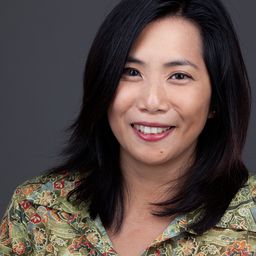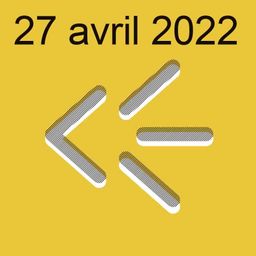Academic Integrity: Leveling the Playing Field for L2 and L+ University Students
Mon statut pour la session
Academic Integrity: Leveling the Playing Field for L2 and L+ University Students
Emily Rosales et Roisin Dewart
École de langues, Université du Québec à Montréal
Des questions en anglais et en français sont le bienvenues.
Plagiarism is a shared concern in universities worldwide (Adams, 2015; Introna & Hayes, 2004; Moore, 2014) often resulting in severe consequences for students. This is especially true for international students or recent immigrants whose undergraduate or post-graduate studies often take place in their second (L2) or additional language (L+) (Ouimet, 2015). These student populations may struggle to perform at the same level as their peers who are studying in their L1, due to lower language proficiency in the language of instruction, for example, in their listening (Knoerr, 2019) and writing skills (Introna & Hayes, 2004), or metacognitive strategies (Hacker, Dunlosky & Graesser, 2009; Knoerr, 2019). The current trend in pedagogical practices aims to support academic integrity through enhanced resources (Bluestein, 2018; McGovern, Pulford, & Siddique, 2016; Dewart & Rosales, 2018, 2019) for L2 and L+ speakers to level the playing field for all learners.
The authors will describe how an ESL program in a French-speaking university reduced the number of reported instances of plagiarism. By targeting the needs of L2 and L+ students, the authors sought to complement existing institution-wide L1 efforts to raise awareness about plagiarism with an online activity and model appropriate academic behaviours. Immediately after its implementation, plagiarism rates significantly dropped and remained low. Following the transition to online learning (COVID-19), guidelines of universal design were applied to improve inclusivity. The authors posit the importance of adopting supportive and inclusive pedagogical practices to raise awareness about issues of academic integrity among students of varying linguistic and cultural backgrounds and proficiencies.
Références
Béland, S., Bureau, J. S., Peters, M. (2020). Plagier en temps de pandémie. Évaluer: Journal international de recherche en éducation et formation, Numéro Hors-série, 1, pp. 35-40.
Bertram Gallant, T., Binkin, N., Donohue, M. (2015). Students at risk for being reported for cheating.. Journal of Academic Ethics, 13(5), pp. 217–228. https://doi.org/10.1007/s10805-015-9235-5
Bluestein, S. A. (2018). Preventing plagiarism (and other forms of cheating): advice from students and Faculty. New Directions for Community Colleges, 183, pp. 7-14.
Bretag, T., Harper, R., Burton, M., Ellis, C., Newton, P., Rozenberg, P., Saddiqui, S., van Haeringen, K. (2019). Contract cheating: a survey of Australian university students. Studies in Higher Education, 44(11), pp. 1837- 1856. https://doi.org/10.1080/03075079.2018.1462788
Centre for Applied Special Technology (2018). The Universal Design for Learning Guidelines, version 2.2. http://udlguidelines.cast.org
Dewart, R., Rosales, E. (2019). Preventing plagiarism through e-Learning : Can't Say You Didn't Know. Communication presented at the 12th Pixel Conference on Innovations in Language Learning, 14-15 novembre, Florence, Italy.
Dewart, R., Rosales, E. (2018). Can't Say You Didn't Know : obliging students to be informed about plagiarism. Conference Proceedings of the 5th WorldCALL International Conference on Computer-Assisted Language Learning [WorldCALL5], 13-16 novembre, Editorial Universidad de Concepcion : Concepcion, Chile, pp. 16-19.
Eaton, S. E. (2020). Academic Integrity During COVID-19: reflections from the University of Calgary. International Studies in Educational Administration, 48(1), 2020. pp. 80-85. http://hdl.handle.net/1880/112293.
Eaton, S. E., Guglielmin, M., Otoo, B. (2017). Plagiarism: Moving from punitive to pro-active approaches. In A. P. Preciado Babb, L. Yeworiew, & S. Sabbaghan (Eds.), Selected Proceedings of the IDEAS Conference 2017: Leading Educational Change Conference (pp. 28-36). Calgary, Canada: Werklund School of Education, University of Calgary. https://prism.ucalgary.ca/bitstream/handle/1880/52099/Eaton,%20Guglielmin
%20&%20Otoo%20-%20Edited%20IDEAS%202017%20Proceedings%20June%2014-1[1].pdf?sequence=1
Ehrich, J., S. J. Howard, C. Mu, and S. Bokosmaty. 2016. “A Comparison of Chinese and Australian University Students’ Attitudes Towards Plagiarism.” Studies in Higher Education 41(2), pp. 231–46. doi:10.1080/03075079.2014.927850
Horton, W. (2011). E-Learning by Design (2nd ed.). San Francisco: Pfeiffer, 636 p.
Levesque, L. (2021, September 12). La fraude scolaire a-t-elle augmenté dans votre université? Le Droit numérique. https://www.ledroit.com/2021/09/12/la-fraude-scolaire-a-t-elle-augmente-dans-votre-universite-ecf13f7e46219c385cf6ec3d9d1ef9a3
McGovern, C., Pulford, A., Siddique, S. (2016). « The Five Paths to Preventing Plagiarism ». TESOL International Convention (April 5-8), Baltimore, MD, USA.
Tomaš, Z. and Shapiro, S. (2021). From crisis to opportunity: turning questions about “plagiarism” into conversations about linguistically responsive pedagogy. TESOL Quarterly, 55, pp.1102-1113. https://doi.org/10.1002/tesq.3082
Université du Québec à Montréal, Service de l’audiovisuel (2018).Tricherie et intégrité académique : Ressources et conseils. https://r18.uqam.ca/conseils.html
Université du Québec à Montréal, Service du soutien académique (2016). Règlement 18: Guide à l’intention des enseignant(e)s de l’UQAM. 1 p.

